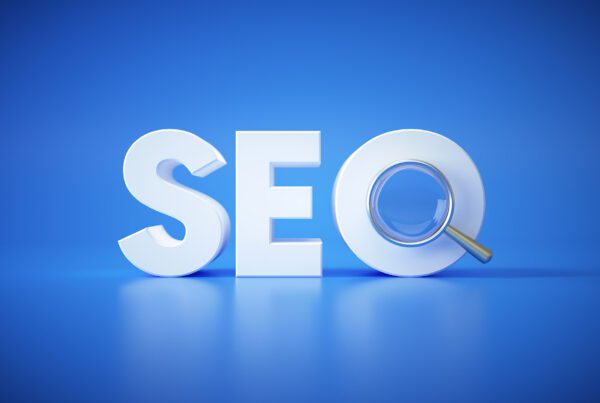Why SEO Still Matters More Than Ever in 2026 and What Businesses Are Getting Wrong

Every year or so, someone somewhere declares that SEO is dead. Then Google quietly rolls out an update and suddenly everyone’s back checking rankings like nothing happened. You’d think we’d have learned by now.
Truth is, SEO didn’t die. It just sort of grew up and matured, really while the internet was busy chasing trends.
These days, it feels less like a checklist and more like a real conversation between brands and the people they’re trying to reach. It’s slower, more intentional, and surprisingly human when you stop to look at it.
As we move through 2026, the smartest marketers know this. They’re not treating optimisation as a checklist anymore; they’re treating it as infrastructure, the foundation of every digital decision their business makes.
This shift defines the new generation of strategy-driven agencies the kind of teams you’ll find at seo digital debut where search isn’t just about keywords anymore, it’s about visibility, trust, and data fluency
Why SEO Isn’t Dead
Once upon a time, SEO was a list of tasks: write a few blog posts, build some links, tidy up your meta tags, and hope Google was kind. Those days are long gone.
Search in 2026 is layered. Voice search, AI-assisted results, conversational queries, visual and video indexing everything now feeds into one connected web of discovery.
The funny thing is, marketers keep saying “search is changing,” when in reality, it’s people who’ve changed. They expect answers faster, tone that feels real, and content that doesn’t sound like it was written for a robot.
That’s why SEO today feels more like behaviour mapping than keyword tracking. The goal isn’t just to rank; it’s to resonate.
The Real Importance of SEO in 2026
For the first time in years, we’ve reached a moment where almost every channel organic, paid, social, influencer, PR feeds into one another. And guess what holds it all together? Search.
SEO in 2026 acts like the connective tissue of marketing. It informs content strategy, UX design, social media tone, and even paid ad targeting.
That’s why it still matters so much. Because SEO isn’t about ranking anymore it’s about relevance.
You can see this shift in how data is being used. Marketers are no longer just looking at keyword reports. They’re analysing search behaviour patterns, intent journeys, and topical authority maps. The goal is to understand why people search, not just what they search for.
When you zoom out, SEO has quietly become the most valuable form of market research a business can access real-time insight into what people need, fear, and trust.
Even now, plenty of businesses are missing the point. It’s not that they don’t care about SEO, it’s that they still see it as something you plug in later, like an afterthought on a website launch checklist.
Real SEO starts way earlier than that. It begins in the same meeting where strategy, UX, and messaging are shaped.
The funny thing is, the data backs this up. Semrush found that nearly six in ten SEO specialists now spend more time studying how content performs than where it ranks. Because honestly, ranking means nothing if no one connects with what they find.
As SEO strategist Aleyda Solis put it recently, “We’ve moved from ranking pages to earning trust. The future of SEO is empathy, not manipulation.”
From Keywords to Connection
For years, SEO was about making search engines understand content. Now it’s about making people feel understood.
In 2026, that means human-first search strategies campaigns built around user emotion, behavioural intent, and contextual storytelling.
Think of how search works today. People ask real questions. They want advice, reassurance, or confirmation. They’re not typing “best service Sydney” anymore; they’re typing “how do I find someone who actually listens.”
That shift has changed the entire rhythm of content. It’s made empathy measurable — through bounce rates, dwell time, and engagement signals.
The best SEO professionals don’t just optimise for traffic anymore. They optimise for trust loops, those subtle digital moments where a user feels like a brand actually understands them.
Why the Future Still Belongs to SEO
The SEO industry in 2026 looks more confident than ever. It’s not about chasing trends but mastering context.
AI has become a useful co-pilot, helping surface insights and streamline analysis. But it hasn’t replaced human judgment. Data still needs direction.
Google’s projection for the coming years suggests that organic discovery will continue to influence over 60% of brand awareness touchpoints globally. That’s not hype, that’s the outcome of trust built over time.
And as search expands beyond browsers into voice, wearables, and AI-driven interfaces, the fundamentals won’t change. Every query still begins with a question. Every question still deserves a credible answer.
That’s why SEO still matters because it’s still how humans look for truth online.
The Takeaway
SEO hasn’t faded into the background. It’s simply matured.
The brands that win in 2026 are the ones who see it for what it really is not a marketing channel, but the language of visibility itself.
The tools might change. The algorithms will evolve. But the need to connect people with the right answers at the right time? That will never go away.
That’s why SEO still matters and why those who master it will keep leading the conversation.
Frequently Asked Questions
- Has SEO really changed that much?
Honestly, it has — but not in the way most people think. The fundamentals are still the same; it’s just that search has grown up. It’s not about tricking Google anymore. It’s about earning trust, and that takes a mix of strategy, creativity, and consistency. - Why do so many businesses still think SEO doesn’t work?
Usually because they’ve been burned before. They hired the wrong people or chased vanity metrics. When SEO’s done properly, it feels slower — but the results last longer. It’s not broken; it’s just misunderstood. - Is AI changing how SEO actually works?
Yeah, absolutely. It’s made the process faster — audits, data pulls, content outlines all that’s easier. But here’s the thing: AI can’t replace strategy. It can’t read the room or sense tone. So the smart teams use AI as support, not a shortcut. - What’s the biggest mistake brands are still making?
They’re still chasing trends instead of truth. Everyone wants quick wins, but SEO is a long game. The brands that focus on clarity, consistency, and honest content? They always win in the end. - What will SEO look like in the next few years?
More human, for sure. Search is becoming a conversation — not a list of results. You’ll see more voice queries, AI-assisted answers, but people will still trust organic content that feels real. That part’s timeless.

Source: Why SEO Still Matters More Than Ever in 2026 and What Businesses Are Getting Wrong



